You have an unhappy girl who doesn’t like the way she looks – but you just think, “Well, these are the teenage years. It will pass.”
You keep finding packed lunches left on the kitchen table, but you think, “She probably just doesn’t want sandwiches. There’s a cafeteria at school. She’ll be eating chips, instead.”
She gives up red meat first – “It gives me bellyache” – and then all meat (“It’s just kind of boring”) and then fish (“It’s kind of spooky”) and then becomes vegan: “Dairy products are cruel to animals, and there are so many other things to eat.”
And you can’t argue with her choice, because this is a popular trend among young people, and you’re happy to buy oat milk and cook with lentils more, and to research and purchase the best supplements to make sure she has everything she needs. It’s just a little cooking challenge – nothing more.
In the mornings, she comes down later and later – so late she has to rush past the breakfast things on the table, shouting, “The bus is coming. Got to go. Bye!” And you know it takes teenage girls a long time to get ready in the morning, so you start pressing smoothies and breakfast bars into her hand, saying, “Eat them on the bus!”
“I will! Thank you!” she says, smiling, looking you right in the eye.
And then, at the end of the month, you find ten uneaten bars in her bag.
But all you can go on is how she looks, and she doesn’t look unhealthy, and she always tells you everything – you are close, so close! – and it can’t be an eating disorder, because you are her mother and she is your baby, and you are a body-positive, cheese sandwich-eating feminist who walks around the house naked saying, “Look at my lovely wobbly tum-tum,” and telling your daughters that they are brilliant and strong and beautiful, and so how could your baby have an eating disorder? She doesn’t have the genes for it.
“I’m just into raw stuff, now,” she said. “It’s the most delicious!” Because the thing is… she’s so cheerful, now! So happy! So… progressive! So organised!
The unhappiness of a few months ago seems to have burnt up – she is now full of energy, a bright, shining energy. It’s as if there is something inside her spinning faster and faster. In almost every way, you would think this is a good thing – she is being a hardworking, happy, model girl.
She is now full of energy, a bright, shining energy. It’s as if there is something inside her spinning faster and faster.
But you can’t shake this recurring mental image – that, in the centre of this shining light, there is a darkness. And the faster the lights spin, the bigger the darkness gets. Pete is the first to say it. “It’s manic behaviour,” he says, as we lie there. “I saw it in a friend, at college. This is like manic depression. Or some kind of mental illness.”
I foolishly believe we can parent our way out of this – of course we can.
I will just… parent her better. If she is worried about her body, I will show her a better, more stable way. I will take her swimming, after school – me and her, playing together – and she will work up a healthy, child-like hunger she can’t deny. And then I will make her something delicious – that fits in with her dietary preferences, but still gives her all the nutrition she needs – and I will positively affirm her eating it, and everything will be better.
That is how you parent a child. That is how you keep them healthy and well fed. That’s how I taught her to eat as a toddler, and how I will rectify this little blip now. It’s not an eating disorder. It’s just an eating… blip.
It’s not an eating disorder. It’s just an eating… blip.
Later, I go to her room. Her hood is up. She’s just sitting on her bed, rammed into the corner.
“Baby, what’s wrong? You’re not eating.”
She shrugs.
“Just tell me! Whatever it is, we can sort it out.”
I sit on the bed. She shrinks away from me. I hug her – if I hug her long enough, she’ll melt, and then she’ll cry, and then she’ll tell me.
That’s how it always works.
That’s not how it works any more. She becomes stiff and hard in my arms. I let her go.
“Tell me!”
“You know what’s wrong with me.” That distant, cold voice.
“I don’t!”
She’s silent. Then: “Why don’t you know the right things to say?”
“What are the right things to say?”
“You know.”
I don’t know. I really don’t know. I promise you, I don’t know. Or: I’m too scared to say them. I don’t want to say it. I am in charge of this silence.
The screaming starts an hour later. I’ve never heard her scream before. It’s ungodly – it sounds like something trapped, even though she roams around the house, locking herself in the basement, then the bathroom, as Pete shouts, in panic, “What are you doing in there?” and tries to kick the door down. We’re both, suddenly, very frightened.
She finally collapses, sobbing in bed, at 2am – repeating, “I’m sorry, I’m sorry,” over and over, crying, as we watch Absolutely Fabulous on my laptop, and I wince every time Edina Monsoon says, “I’m so fat.”
I wake next to her, on Sunday morning, and stare at her face. Asleep, she looks… perfect. Serene.
She does not eat today, either. She walks around the house with dark smudges under her eyes – eyes that look different today. They seem oddly glittering, snake-like. She looks like she’s seen a vision or is hearing other voices. I am more scared than I have ever been in my life.
At 7pm, we google “eating disorder specialist”.
God bless the NHS – at 8pm, a doctor rings us back, and says, “Bring her in as soon as possible.”
We are seeing a doctor now, which means we will be safe, and this whole thing will end soon.
In my mind, the biggest, hardest thing has happened – we have admitted she has an eating disorder, and we have sought professional, official, medical help. They’ll know exactly what to do, and they’ll fix her fast – because we’re us and she’s her – and things will go back to how they were.
In my mind, the biggest, hardest thing has happened – we have admitted she has an eating disorder.
In reality, we go to a hospital that seems like a huge grey Soviet block. For the first two times we go there, my girl refuses to enter the building; weeping at the idea of entering somewhere so sinister and grim.
On the third attempt – after another week of weeping – we see a serious doctor, who tells her that it sounds like she has a problem. He then passes us on to a nurse, who is very kind, and helps my girl write a list of all the food she should eat in a day: three meals and three snacks.
I wait, throughout the appointment, for a prognosis, a schedule, a plan, some firm advice – but… it all seems so vague.
On the way home, my girl stares at the piece of A4 paper they have given her, with her “Eating Plan” written on it, in Biro. Porridge, toast or cereal for breakfast, a sandwich and a yoghurt for lunch, and sausage, mash and broccoli for tea, with a pudding, and biscuits, or cheese, for snacks.
We all know she will not eat this. We all know what she should eat. But neither she, nor we, know how she should.
Now, years later, I know how mental health services work. To be brutal, wherever you are in the world, they are swamped. Child and adolescent mental health is a booming, dark phenomenon in the uncertain 21st century, and in the building we walk into, there are children who look like skeletons, or who have made multiple attempts on their lives, or who live in chaos with parents who are also mentally ill.
In this Pandora’s box of unhappy, pained children, my girl – my girl, who is eating less than 600 calories a day, or else nothing at all; who is screaming; who is not sleeping; who is ringing from school at 11am in the midst of a panic attack, begging to come home – is not at the top of the list for help.
The mental health unit is like a tiny rescue boat in a sea filled with drowning children. It is the ones who are repeatedly slipping under the waves – the ones who are minutes from death – whom they must attend first. In this world, my girl is a low priority.
The mental health unit is like a tiny rescue boat in a sea filled with drowning children.
She needs – I find out, by ringing the eating disorder charity Beat; by ringing a friend who is a child psychologist; and by reading every book I can get my hands on – a dietician and cognitive behavioural therapy. The hospital has just lost its only dietician, and the waiting list for CBT is over a year long.
Here are all the things you can do while waiting for professional psychiatric help. Here are all the ideas you will come up with to make the days better:
*Buy new plates, bowls and cups – thinking that they might make eating “nicer”.
*Drive six miles at 10pm to find a shop that is open and sells the particular and only brand of tofu she will eat.
*Enrol her for “equine therapy”.
*Eat more than you would usually eat – Look! I’m eating! You can too! There’s nothing to be scared of!
*Dream of shutting down Netflix when it broadcasts teen dramas like 13 Reasons Why, and films like To the Bone, about eating disorders, mental illness and self-harm.
Then there are the different phases of tactics you employ, to make this sad, angry girl eat.
We began by being parodically cheerful. “I’ve run you a lovely bubble bath, then you’re going to put on your snuggliest pyjamas, and then I’ve set up an obstacle course for the rats, and we’ll teach them tricks! How cool! I’ve made your absolute favourite dinner, and we’ll watch High School Musical on the laptop while you eat, and then I’ll give you a relaxing foot massage while we look online for pretty dresses.”
Sometimes, the enforced jollity helped. But, more often than not, she would understandably retreat to her room – issuing a forbidding, “I just want to be alone, thanks,” to the cartwheeling f***ing clown knocking on her door and saying, “Daddy’s got Buckaroo! out, darling – you love Buckaroo!”
Buckaroo! with two jazz-handing parents is not, I can tell you now, the cure to an eating disorder.
Buckaroo! with two jazz-handing parents is not, I can tell you now, the cure to an eating disorder.
With her retreated to her room, we embarked on Phase 2: Intellectual Reasoning.
I am still haunted by the look on her face when we would both knock on the door and come in, like the f***ing Logic Squad, to explain to her why she shouldn’t be ill any more. Sitting on the end of the bed, wearing the faces of Enlightenment philosophers, we would TED Talk our sad 13-year-old girl: “You need food for energy; you need food so you don’t get depressed. When you’re starving, your brain function drops and your cortisol levels rise, leading to this anxiety we can see is so bad for you, sweetheart, so… eat! It’s very simple!”
Oh, how we crushed her – steamrolled her with all our thoughts and beliefs! Oh, how hurt we were when she nodded, in the end – “Yes. I see” – but then still. Refused. To eat. Her message: f*** you, Wikipedia. I am sad.
A week later, I am in the chemist’s. I’ve spent five minutes pretending to buy deodorant. I finally walk up to the counter.
“I need… My daughter has cut her arms,” I say. “I need dressings for razor cuts to her arm. What should I get?”
I can’t believe I’m saying these words out loud. I expect the whole room to fall silent. I’m not sure the chemist will know what to do. I’m worried I’ll upset him. Or that he’ll throw me out of his shop, or call social services to report me for being so bad a mother, my daughter has self-harmed.
Instead, the chemist calmly walks over to a shelf and says, “Here – you need medical tape, sterilising spray and sterile dressing pads. We’ve sold out of the small ones – we’ve only got the large ones left.”
He gives me the things. “There’s a lot of it about,” he says, matter-of-factly, shrugging.
————————
The biggest problem when you have a child with an eating disorder is this: every tactic you have ever used in parenting is useless. Worse than that: it’s wrong. What you need, urgently, to do is forget about being a parent, and become a mental health professional, instead.
The biggest problem when you have a child with an eating disorder is this: every tactic you have ever used in parenting is useless.
There are very specific things you should and shouldn’t do – specific words and phrases you must employ, accurately, without deviation or improvisation. Unfortunately, at this time, I do not know these words. I have not yet found the books, or received the advice, in which they reside.
Instead, my head is full of what I read last week, in one of the books I was searching through, for this spell: “Eating disorders have the highest mortality rate of any illness. The average length of an eating disorder is between five and seven years.”
Five and seven years. Her whole adolescence up in flames, like that. What you had fondly imagined to be full of parties, proms, carefully prepared-for exams, bicycles, sleepovers, driving lessons and a slow unfolding into adulthood will, instead, be this: the hospital, twice a week. Bandages. Hiding all the knives. Weighing every meal. Casually folding sheets on the landing when she goes to the toilet, in case she’s making herself sick.
A week later, we are in the hospital for one of our appointments – my child now bandaged, like so many others. We have come, finally, to ask for the antidepressant sertraline – “It might help her get her head above the waves for a bit,” a psychiatrist friend advised, when I rang her, weeping, at 11pm. “It sounds like she’s going under.”
On one of the tattered magazines on the table, someone has written, in the margin, in a shaky, childish hand, “Nobody gets better here.”
I cover it, with my bag, before she can see it.
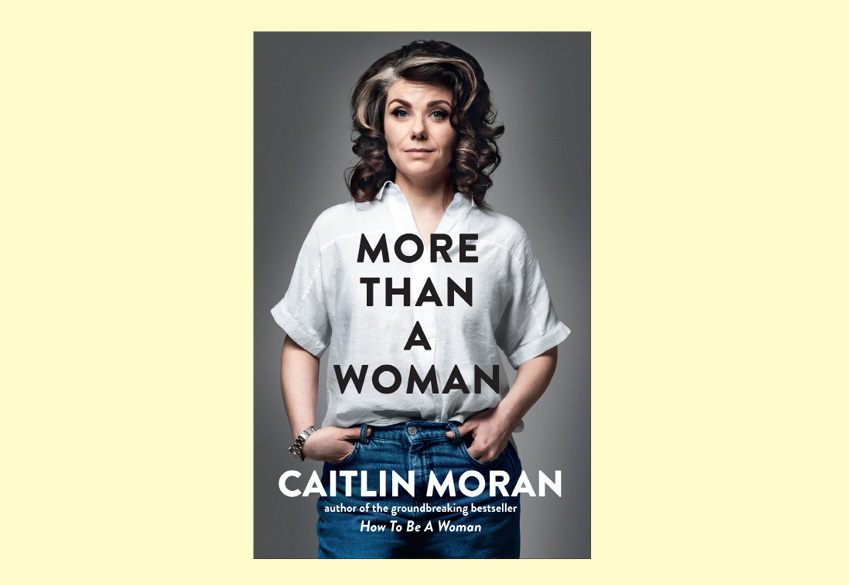
And still, I do not do the simple, simple thing I should: say, “I can see how unhappy you are. It’s OK to be unhappy. I’m not scared of it. I’ll stay with you until it passes.”
Instead, we keep trying to make her make it go away. And she can’t. She’s ill.
Children’s ward, Royal Free Hospital, Hampstead
My girl has taken an overdose.
It is her third this year.
Today is the worst day. The very worst day.
I climb into the tiny bed with her and say, “My poor baby. This is so hard for you. I am so sorry. I’m so sorry. I love you.”
She turns her head into my chest and cries like a little girl. “I love you too,” she says.
We sit, awhile, on the bed. I tuck the blankets around her, tight.
“Mum – I don’t want to do this any more.”
For a terrifying moment, I think that she means “live”. I have never felt a horror like it. The moment seems to go on for ever.
“I don’t want to come here again,” she continues, as I breathe again.
“I am never going to do this again. I am going to get better. I am going to do all the work, and listen to everything the therapist says, and I am going to try, so hard, and I’m not going to give up. I’ve never said this to you, because I couldn’t, but I’m saying it now: I promise you I won’t do this again. I promise.”
I can see her, not in close-up – but as one of millions of teenage girls in the 21st century. The product of her times. The receipt on the world my generation has made.
There are so many girls out there like her. In my social circle, fully a third of the teenage girls I know are on medication; they self-harm; they starve themselves; they have panic attacks so intense they must leave school, or else be taught at home. This epidemic can’t be by chance: in screenwriting, when you are having problems with your third and final act, it’s usually because of problems in your first act. Your children are your third act. If they are troubled, what did you screw up in the first act? Why are our children so depressed and anxious they hurt themselves, in so many ways?
Pete’s here now. We hold hands. We are hopeful. We have been silent a long, long time. Eventually, Pete asks, “What are you thinking?”
What am I thinking?
I am thinking: we just do not make being a grown woman look like an appealing job. We do not sell the idea that being a woman is, yes, difficult – but also amazing and joyous and powerful and freeing. We do not show them a world where we value the skills of women, or seek out their knowledge.
We just do not make being a grown woman look like an appealing job. We do not show them a world where we value the skills of women, or seek out their knowledge.
We do not show them that, however hard they might cry, they will almost certainly end up laughing three times as much; that they will, in the end, come to peace and pride within their bodies; that they will remake themselves over and over – better and stronger each time – and that, at the end of their lives, they will be able to look back at their life’s work and think, “Yes. Yes – I loved my life. I made things just a tiny bit easier, and happier. I loved and was loved.”
I am thinking: things have to change. But how?
Extracted from Caitlin Moran’s More Than a Woman, available now.
Want more stories like this? Sign up to PRIMER’s weekly newsletter here.
Are you or someone you know struggling with an eating disorder? Help is available. Contact The Butterfly Foundation.




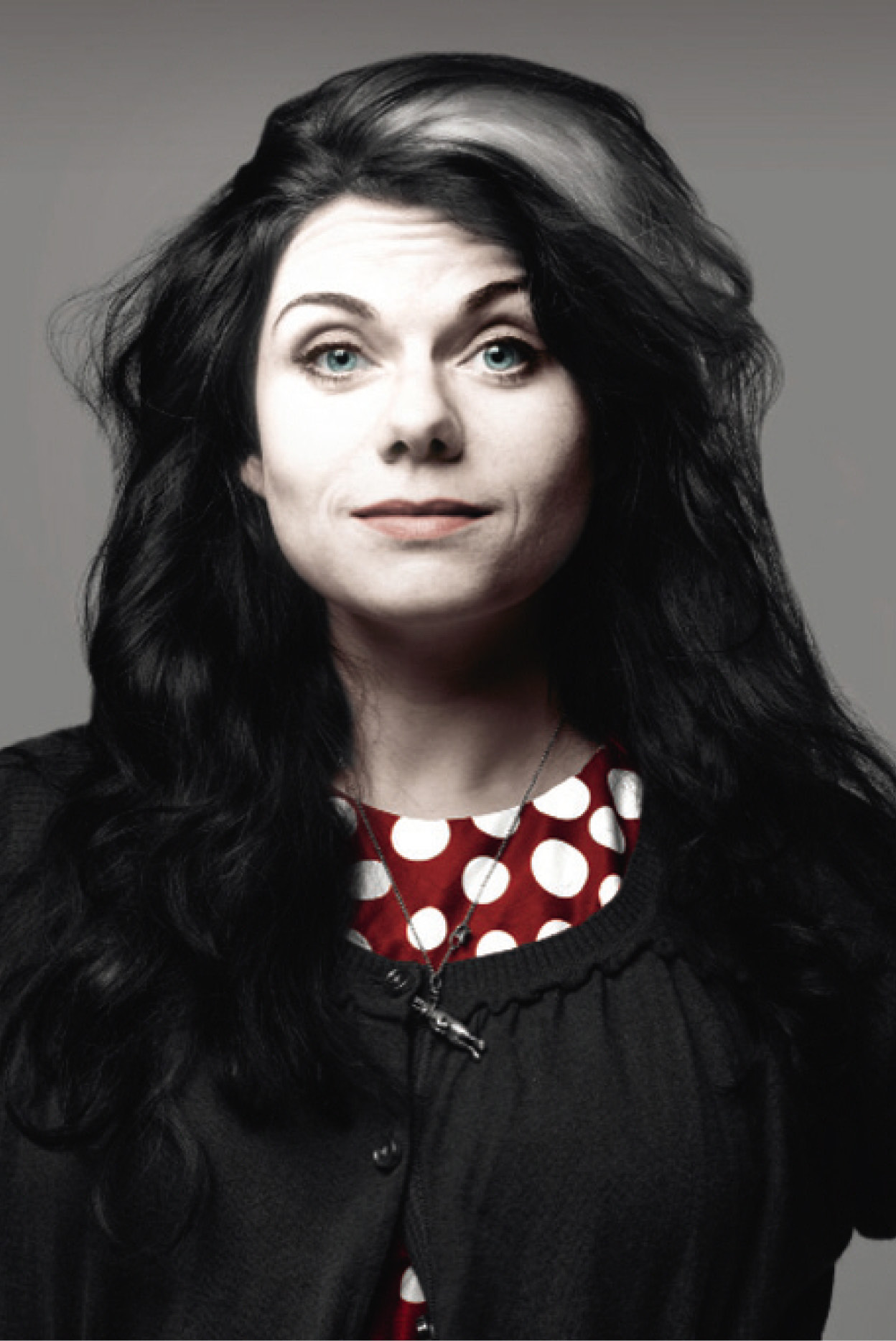
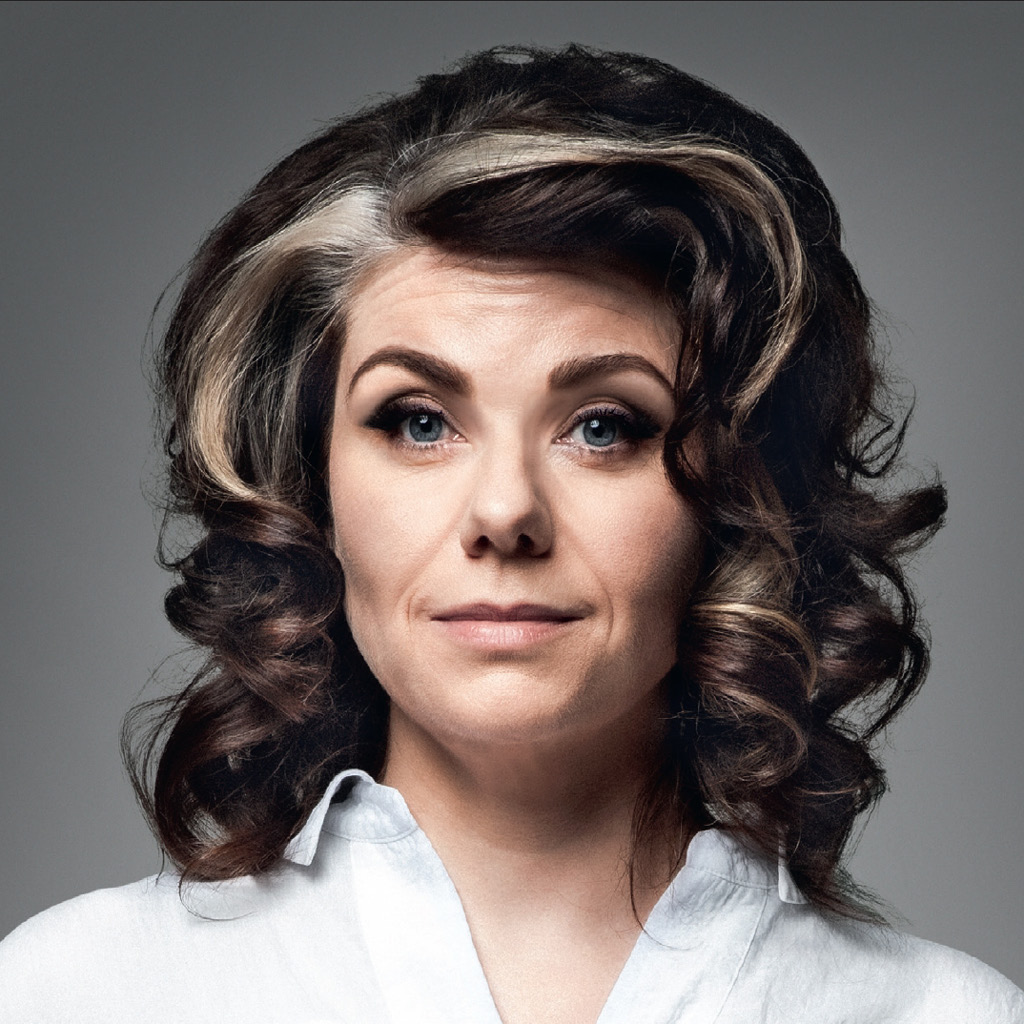

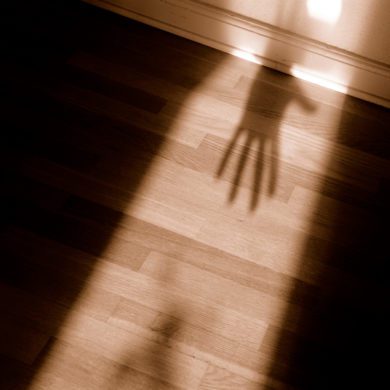
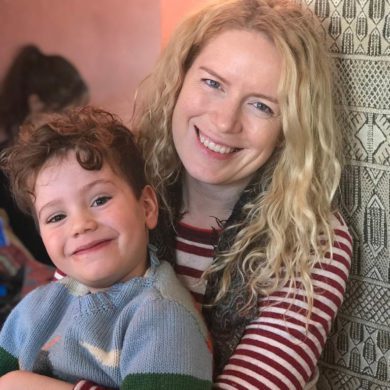
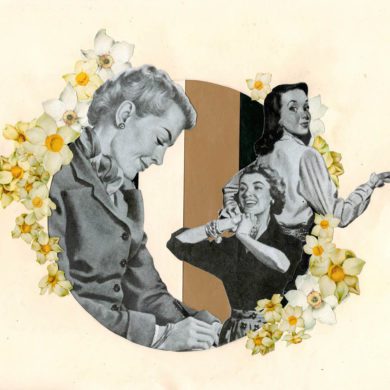
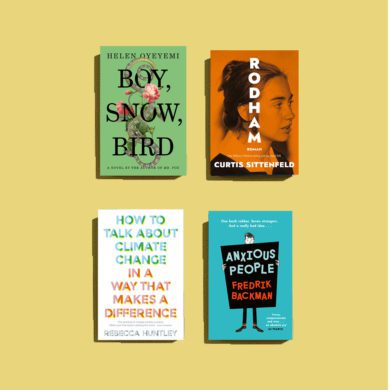


2 Comments